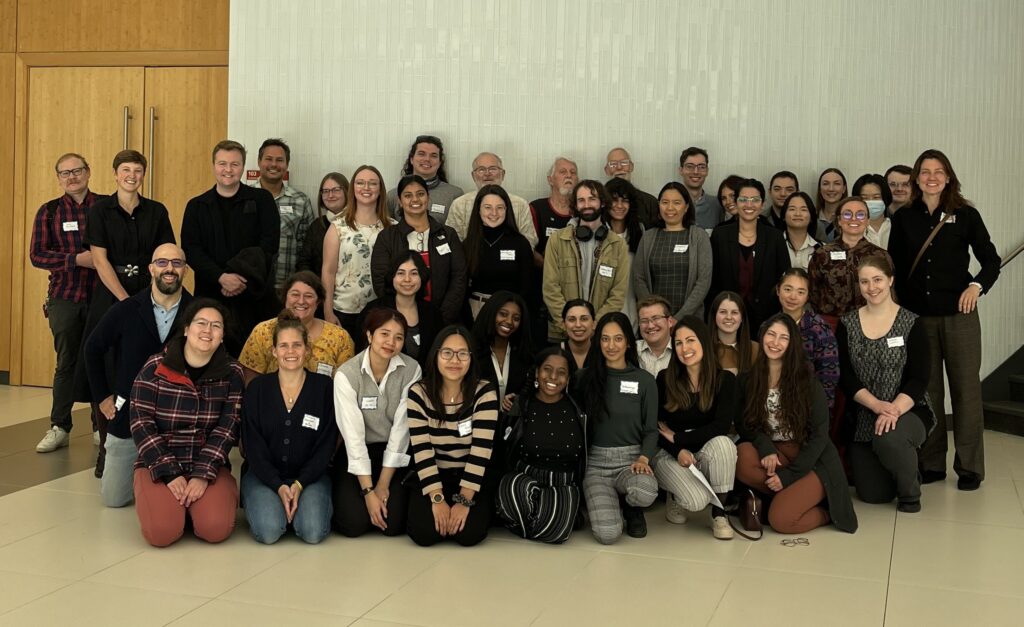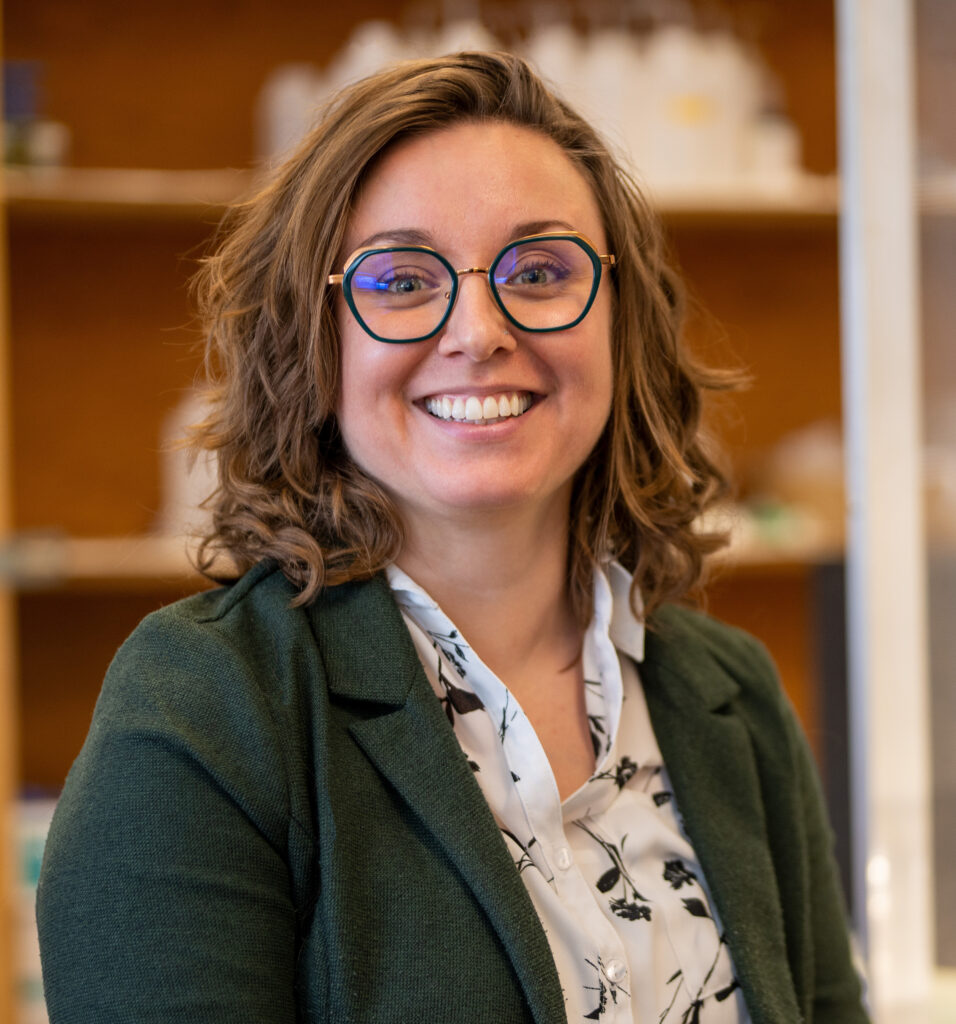

The in-person attendees at BeeCon 2024. They were joined by hundreds of people online as well!
BeeCon 2024 was a hybrid event that brought together bee biologists on a global scale to discuss bees, collection methods, pollination, genomics, conservation and behaviour. BeeCon took place on Oct. 17 (via Zoom Webinar) and on Oct 18 with an in-person option at York University (LSB 105) as well as a virtual option. More details including the schedule, a full program, and location details are posted below.
Videos Now Available!
Watch the full playlist of BeeCon 2024 videos, or see below for individual videos.
Subscribe to our YouTube channel to get notifications of when other videos become available.
Two Page Schedule at a Glance
Full Schedule with Abstracts
Full Program
Keynote Speaker: Dr. Chelsea Cook

Chelsea Cook is currently an assistant professor at Marquette University in Milwaukee Wisconsin and the Chief Science Officer at HiveTech Solutions, a company that creates environmentally controlled storage for small farmers. Previously, she was an National Institutes of Health postdoctoral fellow at Arizona State University, where she studied how individual learning behavior scales to shape collective behavior. As a PhD student at the University of Colorado, Boulder, she studied the social, physiological, and ecological mechanisms of collective thermoregulatory behavior in honey bees, which will be a large topic of today’s talk. A major part of her mission as a researcher is to make science more accessible, so she has developed courses in beekeeping and environmental biology that she teaches in prisons and addiction recovery facilities.
Short Talk Abstract
Animals must be able to navigate a changing environment, whether that is daily temperature fluctuations or long-term climate change. Social animals are hypothesized to manage a changing environment more effectively. In this talk, I discuss how my lab is testing this hypothesis by studying how social insects sense, integrate, communicate, and collectively behave to manage a changing world.
Thanks for our sponsors!
BeeCon 2024 is a hybrid in-person and online event, and we plan to run it completely free for all participants thanks to our generous sponsors!
Support for this event is provided by York University's:
- VPRI (Office of the Vice President of Research and Innovation)
- Faculty of Environmental and Urban Change
Learn more about past BeeCon events here.
Day 1 Presentations
Day 2 Presentations
Instructions for BeeCon Speakers:
Speakers will be allowed a maximum of 12 minutes of presentation time, with a 2-3 min Q&A period at the conclusion.
For those presenting virtually: We will be using Zoom's webinar feature as the platform. Each speaker will be added as a webinar panelist for the day on which you will be presenting. Please join the webinar in the break session before your talk and identify yourself as a panelist.
For those presenting in person: We will be using Microsoft PowerPoint run on a Windows-based computer. Please bring your presentation on a USB or send to beec @ yorku.ca in advance so we can pre-load the presentations.
